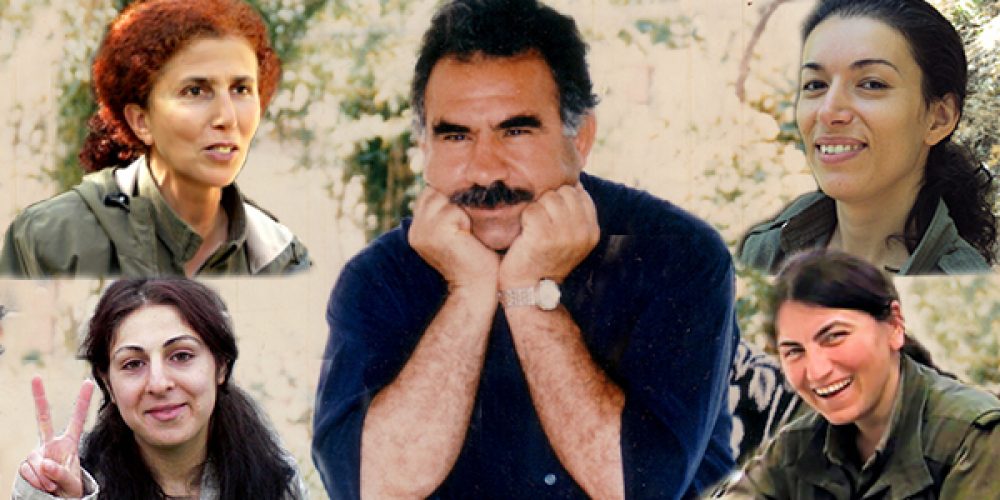From Clara Zetkin to Roza Luxemburg, from the Mirabel sisters to Jiyan Tolhildan, Roj Xabur and Barin Botan, from Sara, Rojbin, Ronahi to Evin Goyi, all revolutionary women have fought for women’s freedom, identity, national and people’s struggle until the last moment of their lives, enabling us as YPJ fighters to continue our struggle on the legacy they left behind. In this article, we would like to shed light on this issue on the anniversary of the feminicides that took place twice in Paris.
- Sara- Sakine Cansız
- Rojbin- Fidan Dogan
- Ronahi- Leyla Shaylemez
- Second Paris Massacre
- Abdullah Öcalan was the target of the first Paris Massacre
- The role of the Turkish State and Paris in the massacres
- the answer to those feminicides is the collective defence of women
When we talk about feminicide, we mean the killing of a woman as such, but we must know that the killing of women cannot be considered an isolated event. The killing of women within the home and the killing of women as a political vanguard are carried out by the same system with the same principles. The fact is that when the system specifically attacks the female revolutionary vanguards or when it makes the perpetrators of these crimes go unpunished, it becomes even more apparent how feminicides are political acts. Women are attacked because, especially within a revolutionary context, they represent the strongest alternative to the current patriarchal state system; the men kill women when they do not bow to their blackmail and when they feel they cannot control their strength. Feminicides are part of a total war that the system wages against women and what they represent. It is a war that began 5000 years ago when the patriarchal system wanted to impose itself on the ecological system based on women’s freedom, which until then was the most widespread. It is a war that has not yet ended because, for 5000 years, we women have been carrying out a tenacious resistance. It is the same resistance and defence of an ancient culture that wise women carried out while they were attacked as witches in the 15-18th century; it is the same struggle of the Mujeres Libres in Spain against the dictator Franco, it is the same as the black women in America, of the matres de Plaza de Mayo in Argentina; against them it is the same violence of the Taliban in Afghanistan and of ISIS in Syria, it is the same violence against the indigenous peoples in the Americas and the European migrants who until today sold as slaves.
Feminicides are a part of this war, which is fought on a social, psychological, and political level and which, if we can decipher them, crosses many aspects of every woman’s life. The events in Paris, which we will recount here, are some of the most serious historical examples of feminicides. On January 9, 2013, the comrades Sara (Sakine Censiz), Rojbin (Fidan Dogan) and Ronahi (Leyla Seylemez) fell martyr following a gun attack carried out at the Kurdistan Information Office in Paris; 10 years later, still in Paris, on December 23, 2022, Evin Guyi (Emine Kara) fell martyr together with Mir Perwer and Abdurrahman Kızıl in an armed attack on the Ahmet Kaya cultural centre in Paris.
1-Sara- Sakine Cansız

Comrade Sara (Sakine Cansız), one of the founders of the Kurdistan Workers Party (PKK), has left her mark on history with her life, love, struggle and devotion from the beginning of the struggle.
Comrade Sara’s family was of the Alevi religion, a belief that outwardly resembles Islam but still retains strong traces of older beliefs connected to nature in its rites, culture and ethical values. The city of her origin, Dersim, suffered heavy massacres from the Turkish state and was the site of great resistance from the population in the years 1937-1938. If, on the one hand, the erasure of the Kurdish-Alevi culture of Dersim was necessary for the construction of the Turkish nation-state, on the other hand, the resistance that took place in Dersim was important for forging the combative character of comrade Sara because her family was part of it. This combative character was fundamental during the resistance in Amed prison, where comrade Sara remained locked up for 11 years following the coup d’état of September 12 1980. In detention, Sara never lost her determination and confidence in victory, carrying forward a resistance that gave strength to her comrades in prison and was a source of inspiration for the entire Kurdish liberation movement. Until today, we can say that the resistance in Amed prison was one of the bases on which that personality was built: confident in victory and, therefore, not willing to give up to the point of being ready to sacrifice, typical of the women and men of the PKK.
After the prison resistance, she continued her struggle with a strong personality with her devotion to freedom, the war she fought in the mountains of Kurdistan, and the training and support of the Kurdish People’s Leader Abdullah Öcalan himself. Comrade Sara played an active role in the struggle with this belief until the last moment of her life; while she won the love of humanity and evolved by working with all her strength with her longing for peace in 4 parts of Kurdistan and Europe, her passion for women’s freedom, her belief in the brotherhood of peoples.
Also, due to her origins, Abdullah Ocalan described the Paris attack that targeted his comrade Sara as the continuation and repetition of the Dersim massacre by the Turkish state.
2-Rojbin- Fidan Dogan
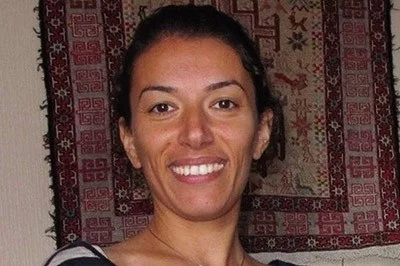
Robin (Fidan Doğan) has been one of the pioneers of the women’s movement for years, passionate and seeking freedom, and concerned and sensitive to the problems faced by women in all areas of the struggle. Known for her industriousness, she has a stubborn, assertive, determined stance on her goals and objectives. She has taken important responsibilities in politics and diplomacy in carrying the honourable and just struggle of the Kurdish people and the suffering of her people to the international arena, bringing friends and positions to the freedom struggle, and becoming the strong voice of the Kurdish people and women. Comrade Rojbin has shown that women can fight strongly against the male mentality and state institutionalisation, which is its peak power area in war and different areas of politics such as diplomacy.
Diplomacy for us and her means creating bonds between peoples, alliances between cultures, and unity between women. It means making the struggle based on the ideas of our leader, Ocalan, known to all people hungry for freedom. Comrade Rojbin managed to have effective diplomatic meetings with the state spheres and the feminist and socialist movements, reaching the heart of each one through the 3 cultures she personified (Kurdish, Turkish and French) and through a smile that expressed confidence in the cause for which she fought.
3-Ronahi- Leyla Shaylemez
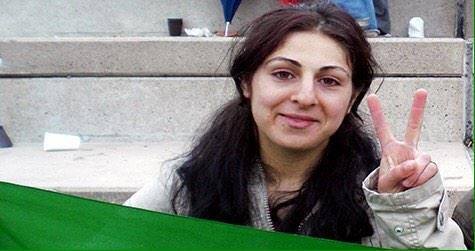
Comrade Ronahi was born in 1989 in Mersin; in the 1990s, she emigrated with her family to Halle in Europe, where she began studying architecture; even before finishing her studies, she chose the revolutionary path. Working in Europe means being constantly subjected to the ideological attacks of the capitalist system, which tries in every way to distance you from socialist principles and tie you to itself: it takes great conviction to maintain a revolutionary personality, and in this, Ronahi has distinguished herself in an exemplary way.
She plays an important role in youth work by making a great effort to return the Kurdish youth, who wanted to be grounded in the dirty wheel of this system, to their true essence. For this reason, the main focus in the person of Comrade Ronahi was the Kurdistan youth movement.
”Sakine’s assassination was not so ordinary; it was very planned. For me, it was a justification for war. For us, the assassination of Sakine was even heavier than the assassination of the Austrian Crown Prince in the First World War.”
Abdullah Ocalan
4-Second Paris Massacre
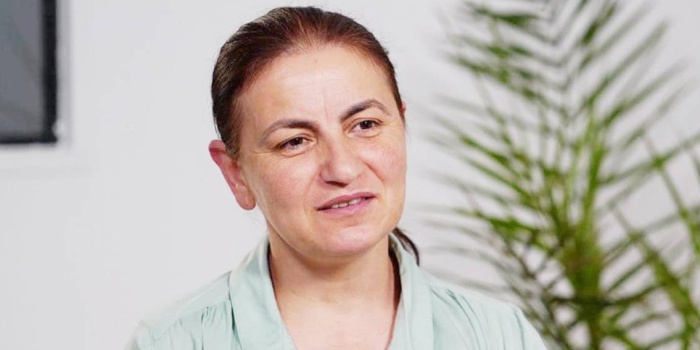
The targeting of Comrade Evin Goyi (Emine Kara) and two patriots at the Ahmet Kaya Cultural Center in Paris on the 10th anniversary of the massacre is a planned attack against the targeted individuals. Comrade Evin Goyi, from the Botan area, joined the freedom movement in the early 90s, growing up with a sense of revenge against the assimilation, genocide and all kinds of inhumane practices of the Turkish state against the Botan people. Botan’s spirit of resistance and quest for freedom brought her together with Comrade Sara. With her friend Sara, she played a leading role in the formation, organisation and development of the women’s army. Despite her young age, she took on the burden of the women’s liberation struggle.
Comrade Evin Goyi leads the construction of a new life, free society and democratic nation by taking part in the activities of TEV-DEM (Democratic Society Movement), Social Defense Forces (Hêzên Parastina Civakî) in the Rojava Revolution in the fight against ISIS, which threatens all peoples, women and the world. With her pioneering personality, from villages to cities, she made a great effort to form communes and assemblies. Comrade Evin Goyi won the love of the people of Rojava as a socially oriented person and played a decisive role not only among the Kurdish people but also among the Arab and other ethnic peoples.
5- Abdullah Öcalan was the target of the first Paris Massacre
At the time of the First Paris Massacre, there was a period of ceasefire between the Kurdistan Freedom Movement and the Turkish state. At the same time, Kurdish People’s Leader Abdullah Öcalan was taking steps towards a democratic solution to the Kurdish question, and a ground for dialogue was being established.
The attacks in Paris were, therefore, intended to sabotage the peace process carried out by Abdullah Ocalan. Furthermore, comrade Sara, one of the founders of the PKK, had ties of deep friendship with Ocalan himself; she was among the very first women who joined the movement and built autonomous women’s organisations at a time when we consider the central role of women in within the Kurdish liberation movement, we understand how assassinating comrade Sara is a direct affront to the heart of the Party and its founder, A.Ocalan. For both these facts, we can say that the attack in Paris, in its essence, is an attack on Abdullah Ocalan himself. Following the 2013 Paris feminicide, A. Ocalan said, “When they shot Sakine, they shot me”, but due to the conditions of isolation in which he finds himself, we are unable to receive his considerations regarding the second feminicide in Paris, which Evin Goyi fell into. The isolation of Ocalan himself, for almost 25 years in prison for a person in Imrali, who has not been able to communicate with the outside for 32 months, cannot be considered separately from the events in Paris. Today, not only the Kurdish people but everyone in the world who reflects the values of freedom, democracy, ecology and women’s freedom is strongly concerned about the health of leader Ocalan. The purpose of his isolation is the same as that of the Paris assassinations: to prevent his philosophy and paradigm from spreading.
The Turkish state, which could not digest the liberation of the cities in Rojava from the ISIS gangs that plagued the whole world under the leadership of YPJ, provided the most significant support to the gangs in many areas such as logistics, finance, etc., and wanted to avenge the ISIS gangs by targeting Sosin Birhat, Jiyan Tolhildan, Roj Xabur Barin Botan and many YPJ commanders and fighters who played a leading role in the revolution. For this reason, the targeting of Comrade Evin Goyi, who fought relentlessly in the Rojava Revolution on the 10th anniversary of the Paris massacre, is a result of the physical genocide against the Kurdish People and its fighters.
6- The role of the French State and Paris in the massacres
Everywhere in the world, women at the forefront of social movements are killed, and everywhere in the world, states remain silent. The French State is no exception: the original land of Olympe de Gouges and her demands in favour of women, the land where she suffered the guillotine, today once again sees women’s political avant-gardes being murdered. Unfortunately, the actions taken by the French State to fully understand the dynamics that led to the killing of Sara, Rojbin, and Ronahi were not sufficient. Although there was evidence of the involvement of the Turkish Secret Services (MIT), the consequent necessary actions were not undertaken. In a press release last year, the KCK (Koma Civaken Kurdistan) denounced: “The approach of the French State is far from the stance of an independent and sovereign state. By covering up the first Paris massacre and not disclosing the related facts to the public, it has prepared the ground for the Turkish MIT to carry out the second Paris massacre. This massacre would not have happened if the French State had publicised the available information and held accountable Erdoğan, MIT and their collaborators, i.e. the perpetrators of the January 9, 2013 massacre. To remain silent or cover up the attacks against a people who have given more than 10.000 martyrs and more than 20.000 wounded against the Islamic State [IS] – the enemy of humanity and scourge of the whole world – means being a partner of the mentality and politics of the genocidal AKP-MHP fascist government and a friend and collaborator of IS.”
The share of international sovereign powers in the Turkish state’s courage to continue these massacres is also significant. For years, the assimilation, genocide and all kinds of inhumane policies against the Kurdish People have spread beyond the territory of Kurdistan to Europe.
The hegemonic forces are afraid of the ideas of Abdullah Ocalan, which the Kurdish people defend in Europe because they are the alternative to patriarchal and state power. Through these ideas, a society can be organised outside the control of hegemonic forces. The reason for the silence of the European states and the majority of non-European states is precisely the strength and power of these ideas. The silence of the European States is not limited to the massacres in Paris but extends to all types of massacres that are carried out against the Kurdish people, whether they are linked to the use of prohibited weapons in the mountains where the guerrilla tenaciously resists, whether they aid to ISIS or other fundamentalist groups that act against the revolution of the peoples here in the north and east of Syria, be they attacks against the population like the one that occurred in Sur, Amed (Diyarbakir) in 2016.
7 – the answer to those feminicides is the collective defence of women
We cannot understand these attacks against women as isolated examples. We cannot accept the walls that the patriarchy wants to impose between us; we cannot accept building these walls, even in our hearts. Geographical or cultural distances cannot be a limit in analysing and perceiving these attacks. The capitalist-state-patriarchal system would like to reduce us to a state in which we are no longer capable of feeling, deep within ourselves, this violence towards other women as violence towards ourselves. As YPJ, we feel each of these attacks is an attack on all of us, and the reality is indeed this: each of these attacks is an attack on all of us. All of us must understand that these are attacks as carried out by a system against women as political subjects. Every attack on women in Afghanistan, on indigenous women in America, on ecological or human rights activists, and on women in the Middle East is an attack on every woman in the world. While on the one hand, the attacks and feminicides that the system continues to perpetrate do not stop, the blood of our martyrs does not remain on the ground and, in the footsteps of women like comrade Sara, Rojbin, Ronahi and Evin, thousands have chosen the revolutionary life. They took up arms in the mountains of Kurdistan or chose to participate in the construction of the revolution in North and East Syria. Millions of women worldwide stood up shouting “Jin Jian Azadi,” “not one less”, and dozens of other slogans. From Abiya Yala to Africa, from the Middle East to East Asia, from Oceania to Europe, all over the world, women are standing up against every kind of feminicide and swearing revenge with slogans like “If tomorrow it’s me if I don’t come back tomorrow, destroy everything. If it’s my turn tomorrow, I want to be the last.” Today, what is needed is a form of collective defence of all women and the world. Because the alliance of women is the most potent weapon against a system that has its roots in patriarchy and destroys social bonds, makes human beings slaves and attempts to annihilate nature. Because the strength of the women of the world, when we are united, is unstoppable: our revenge will be the realisation of the dreams of our fallen comrades, the creation of an ethical, political and ecological society based on women’s liberation.
